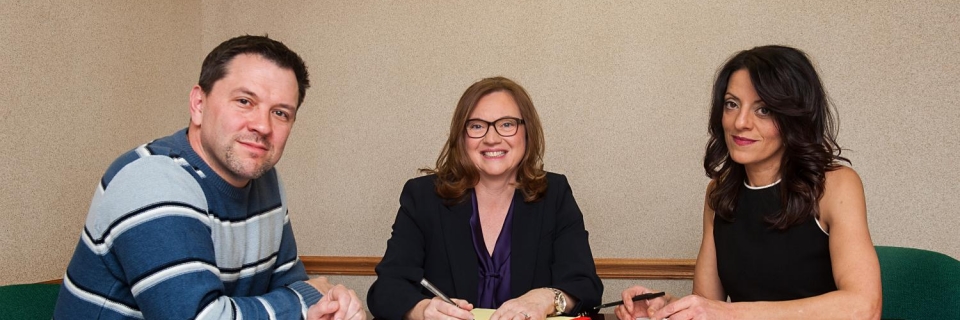COLLABORATIVE MEDIATION
"The Friendly Divorce"
IF TRADITIONAL MEDIATION IS NOT FOR YOU, THEN TRY COLLABORATIVE MEDIATION
What is Collaborative Mediation?
Collaborative Mediation is a cooperative, voluntary, conflict resolution process for parties going through separation, divorce or other family law matter, who feel that they need more support than the mediation process will allow. In the collaborative process each party has their own individual attorney, who works "collaboratively" with the Mediator, the other spouse and his or her attorney, and possibly financial advisors or mental health professionals to create shared solutions to the issues presented by the parties.
What are the Main Principals of Collaborative Practice?
Collaborative Divorce Practice is a supportive, considerate and more reasonable approach to divorce where couples pledge:
- not to go to Court
- to have a full, complete and honest exchange of information
- to work collaboratively with their spouse, the attorneys, a mediator, and other allied professionals to resolve their conflict
- to reach a solution that works best for both adults and the family
Why do Couples agree not to go to Court?
Collaborative practice requires a commitment to settling issues without court intervention. As a result, the parties pledge during the collaborative mediation process not to go to Court. This encourages the parties and their attorneys to use conflict resolution techniques rather than the court system to reach shared solutions to problems.
What information must be shared in the process?
Each party must commit to maintaining a high standard of honesty and integrity, and shall not take advantage of the other party. Therefore, all information that is important is resolving their disputes must be shared with the other party, their attorney and any allied professional. All participants will meet regularly with each other in conferences to share information, and discuss solutions until the divorce, separation or other family matter has been resolved.
Who are the other allied professionals?
In collaborative practice it is recognized that other professionals can have value in assisting the parties to reach agreements. These professionals can include mental health therapists, child specialists, financial planners or accountants. The parties work together with their attorneys to determine when and what professionals are needed.
What is the cost of Collaborative Divorce?
Although collaborative divorce tends to be more expensive than mediation, because the parties are committing not to go to Court, and all participants work together to reach solutions, the cost is certainly much less than a litigated divorce.
